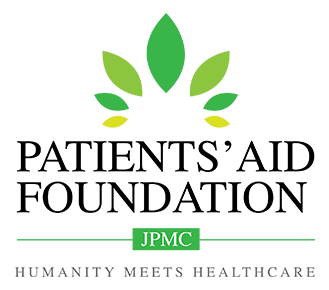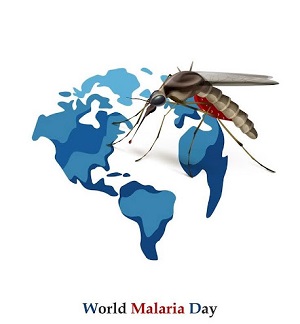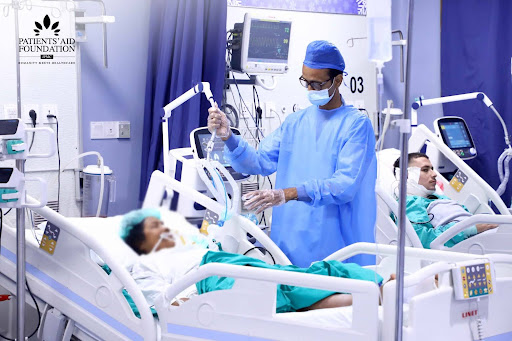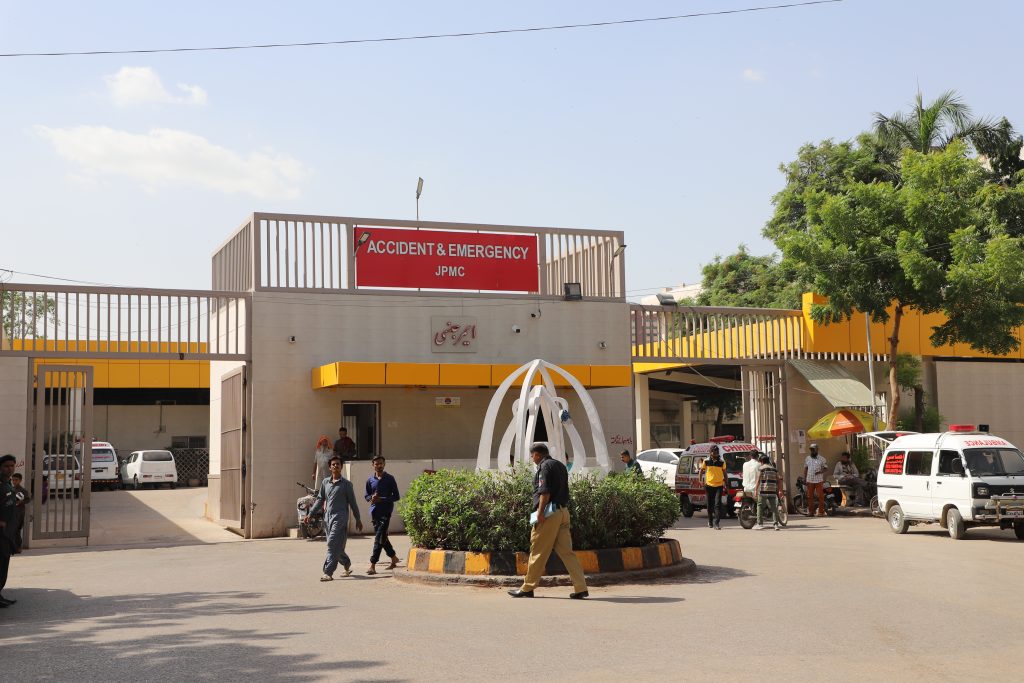Fighting Malaria in Pakistan with Patients’ Aid Foundation
A life-threatening illness caused by something as small as a parasite, yet with a huge impact, this is malaria. It is transmitted to humans when bitten by an infected female mosquito, known as ‘Anopheles.’ Despite global advancements in prevention, diagnosis, and treatment, malaria remains a serious public health challenge, especially in tropical and subtropical countries like Pakistan. The disease not only threatens lives but also places immense pressure on under-resourced healthcare systems.
In Pakistan, malaria continues to pose a critical concern, particularly during the rainy season. In 2022, the World Health Organization (WHO) revealed a terrifying truth: Pakistan saw more than 3.4 million suspected malaria cases, with over 170,000 confirmed infections, highlighting the alarming scale of this deadly disease. The disease was responsible for over 608,000 deaths worldwide the same year, underscoring its global impact. Within Pakistan, the two most common types of malaria, Plasmodium vivax and Plasmodium falciparum, are known for their recurring symptoms and serious complications if not treated promptly. These two strains create unique challenges for timely diagnosis and effective treatment across the country.
Understanding the Challenge in Pakistan
Pakistan’s geographic and climatic conditions create an ideal environment for the spread of malaria. High humidity, prolonged monsoon seasons, and frequent water stagnation allow mosquitoes to breed and spread more easily. Rural and impoverished urban areas, in particular, suffer the most due to poor drainage systems and lack of awareness about basic mosquito prevention measures.
Moreover, internal migration and poor access to healthcare facilities contribute to the persistence of malaria in the country. Many communities lack proper diagnostic tools and resources to treat malaria in its early stages. As a result, patients often reach hospitals only when their symptoms become severe, making treatment more complicated and costly.
Why Raising Malaria Awareness is Crucial
This April 25th, 2025, on World Malaria Day, the Patients’ Aid at Jinnah Postgraduate Medical Centre (JPMC) is raising a powerful call to action, emphasizing the urgent need for malaria prevention and awareness across Pakistan. The foundation has always prioritized educating the public about major health threats, especially during vulnerable periods like the monsoon season. Through community campaigns, free diagnostics, and treatment programs, we strive to reduce the malaria burden in both urban and remote communities.
What is Malaria and How is it Caused?
Malaria occurs when the Plasmodium parasite is passed to humans through the bite of an infected female Anopheles mosquito. After entering the body, the parasite makes its way to the liver where it multiplies before moving into the bloodstream and infecting red blood cells. The disease is not contagious between humans and requires a mosquito to transmit the parasite.
Regions like Karachi and other parts of Sindh, Balochistan, and Punjab see a rise in cases, especially during and after the rainy season. Stagnant water serves as breeding grounds for mosquitoes, which is why this season, typically from July to October, is the peak malaria period in Pakistan.
Malaria Symptoms
Early detection of malaria symptoms can be the difference between life and death. Symptoms shows up within 7 to 30 days and include:
- High fever and intense chills
- Headaches and body aches
- Nausea, vomiting, and diarrhea
- Profuse sweating and fatigue
In severe cases, these symptoms can quickly worsen, leading to life-threatening complications if left untreated.
Severity of Malaria If Not Treated Timely
Failure to treat malaria promptly can lead to following serious health issues:
- Cerebral malaria: This type affects the brain, leading to many complications such as confusion, seizures, or coma
- Organ failure: Including kidneys and liver
- Breathing difficulties: Oxygen levels drop significantly
- Low blood sugar (hypoglycemia): Especially dangerous for children and pregnant women
Children, pregnant women, the elderly, and individuals with weakened immune systems face a higher risk.
Malaria Prevention Measures
Preventing malaria involves both personal actions and collective responsibility. Here are some effective strategies:
- Use of insect repellents: Products with DEET or picaridin repel mosquitoes effectively
- Nets: Sleep under insecticide-treated nets for protection, esp during the night
- Indoor spraying: Helps reduce mosquito populations within homes
- Avoid stagnant water: Empty containers, clean drains, and maintain dry surroundings
- Take antimalarial medications: For travelers or those in high-risk areas
These steps are simple yet powerful in preventing infections and protecting communities, especially in low-income areas where access to treatment is delayed.
JPMC Providing the Best Quality Medical Care in Karachi and Beyond
At the heart of this fight against malaria is the Patients’ Aid at JPMC, which has empowered countless individuals to access the best medical care in Karachi and beyond. Patients from Sindh, Balochistan, Punjab, and even remote northern regions regularly visit JPMC to access quality treatment from skilled professionals, thanks to the unwavering support of generous donors and healthcare partners who have made it possible.
Spreading Hope Through Free Quality Healthcare in Pakistan
Patients’ Aid continues to provide free healthcare in Pakistan for diseases like malaria, cancer, and other life-threatening conditions. This is not just about curing an illness, it’s about restoring dignity and giving hope to individuals and families who cannot afford medical care. Whether it’s through awareness sessions, timely diagnosis, or expert care, the non-profit remains committed to quality healthcare access for all.
This noble mission cannot succeed without your generous support. Patients’ Aid encourages everyone to donate their “roz ka sadqa”, your daily act of kindness, to support underprivileged patients who rely on this help for survival. Every rupee goes toward providing medicine, treatment, and hospital care to those who need it most.
Donate now and become a part of Pakistan’s healthcare revolution.
Your generosity can help us continue to deliver the best medical care in Karachi and support countless lives across the country. Whether you are in Pakistan or abroad, your small contribution can have a life-changing impact.
Together, we can eliminate malaria, promote public health, and bring hope to those who have none.




